The sound of a helicopter cut through the brisk fall air as police surrounded Annette Harris’ red brick home. Around 9:30 p.m. on Oct. 21, Omaha police arrived looking for a carjacking suspect who had abandoned a vehicle near her house, according to police and tow truck records.
Police, thinking the suspect was inside Harris’ home, kicked and pounded on her door, damaging the handle and cracking the frame, she said. When Harris and her 14-year-old daughter told them no one else was home, she said officers accused them of lying and hiding Harris’ 27-year-old son, who had a non-felony warrant.
After an hour and no arrests, the police left, Harris said, but her fear – and her anger at being accused of something she says she didn’t do – hasn’t gone away. Six days after the incident, she filed a formal complaint with the Omaha Police Department.
“I told myself if I don’t file a complaint then they’re going to keep treating people this way,” she said. “I want accountability.”
If the police dismiss Harris’ complaint, she knows she can appeal to a civilian-led board meant to oversee the department.
But that board holds its meetings in private, has no way to subpoena witnesses or directly discipline a police officer – and in reality almost never considers a case like Harris’.
Omaha’s Citizen Complaint Review Board has reviewed a total of seven complaints against police in the past four years — including none during 2021 or 2022.
By contrast: Lincoln’s board reviewed 34 complaints in 2022 alone, Kansas City’s reviewed 111 during that calendar year and Chicago’s saw more than 1,000, though other nearby cities, including Minneapolis, look more like Omaha.
“I think it’s safe to say that Omaha stacks pretty low in terms of providing real accountability,” said John Shjarback, a policing expert and law professor at New Jersey’s Rowan University, who noted it’s sometimes difficult to compare cities. “I think it’s safe to say that it is more symbolic.”
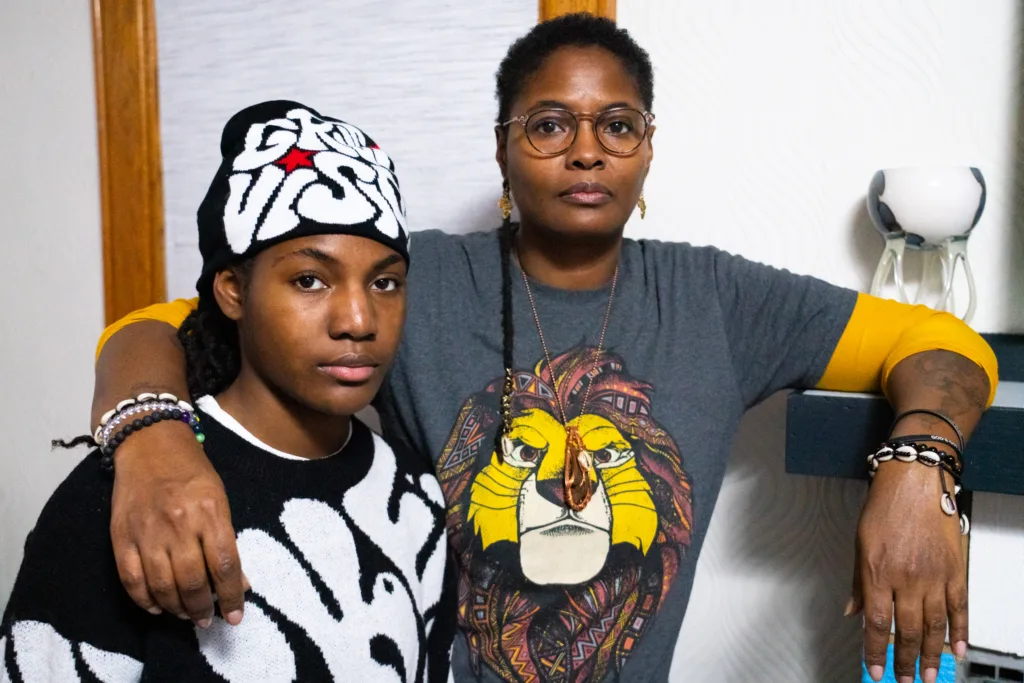
State Sen. Terrell McKinney, a Democrat representing northeast Omaha, has introduced a bill in the Nebraska Legislature that would add several oversight measures to police departments. He’s done so in part because he thinks Omaha’s current oversight board is “just a waste of time.”
Omaha’s Citizen Complaint Review Board was established in 2014 by Mayor Jean Stothert, a Republican, who appoints the board’s members. There was no civilian police oversight during the tenure of Mayor Jim Suttle, the Democrat who preceded Stothert. Mayor Mike Fahey, a Democrat, fired Omaha’s last police auditor in 2006 after she released a report critical of police.
Questions sent to the mayor’s office about the board were directed to Travis Justice, the current board chair. Justice said he’s satisfied with the low number of complaints, which he says have been consistent since he joined the board in 2016. The low number is a testament to the good work of Chief Todd Schmaderer and the department, Justice said.

“I would be alarmed if we saw large fluctuations in the number of cases we are being presented with, but we just aren’t seeing that,” he said in an email.
In the past, Stothert has also said she’s unconcerned by the oversight board’s low number of complaints, including in 2016 when a majority of the board resigned partly over its lack of work.
“I still think the system that we have is the best system that there could be,” Stothert said in 2020. “I think that the worst thing that we could do would be to let a board of citizens that are not trained impose discipline. I believe that is absolutely the worst thing because it takes the power to run the department away from the chief.”
Omaha’s seven-member board is required to meet quarterly, but its meetings are not public. The board is also required to host quarterly public forums to educate people on its process and what constitutes a reviewable case. No such forums are mentioned in any annual reports since 2020, when the board was first required to list a synopsis of meetings.
If the board disagrees with Omaha police’s decision on a case – which Justice said has happened but declined to explain, citing a confidentiality agreement – the board can only make recommendations to the mayor. Under the Omaha police union’s contract, any disciplinary action must happen within 100 days of the incident.
Richard Westcott, who served as board chair for three years until his resignation in October 2021, said the lack of complaints to review frustrated him at times.
Board members did host community education forums, he said, but that outreach didn’t lead to more cases.
“I just felt that we could have had a lot more,” he said. “(Otherwise) you don’t have any problems here in town, which you don’t believe for a minute.”
Occasionally Westcott wished the board could dig deeper, he said, but most of the time he felt members had ample information. The police department seemed to take the board seriously, he said, like when it implemented a recommendation to ensure all SWAT team members wear body-worn cameras.
Roger Garcia, now chair of the Douglas County Board of Commissioners, served as chair of the Citizen Complaint Review Board prior to Westcott. Garcia said he also found the police to be forthcoming with evidence, like an officer’s personnel record or video footage, and interested in the board’s findings. But he said a review of the board can’t hurt.
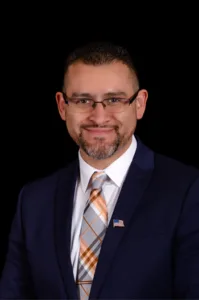
“Overall, I believe that the Mayor’s office and police department have an interest in genuinely supporting the” review board, Garcia said in an emailed statement, “it’s just a matter of keeping with the times and always trying to improve upon everything we do, alongside constant engagement with the citizens for which our services are intended for at the local level.”
Omaha’s civilian oversight does not stack up well when compared to most national best practices, said Sharon Fairley, a University of Chicago law professor who has helped create police oversight bodies in Chicago and served as general counsel and administrator of similar boards.
Because Omaha’s board can only review appeal cases, its scope is limited, Fairley said. “They are a weaker form of oversight,” she said of appeals-based boards like Omaha’s. “There’s no question.”
Omaha’s board is also dependent on the police department for information. In good oversight models, citizens have direct, unfettered access to police records, Fairley said. The body’s meetings and findings should also be public, she said.
Omaha’s board seems representative, Fairley said, requiring “diverse” members who are “reflective of the social, ethnic and economic components” of the city. But Fairley wonders how that looks in practice. For example: How many members trust police? How many distrust police? You need both, she said.
One positive, Fairly said: Members receive a minimum eight hours of training in police practices, policies and procedures, as well as go on two police ride-alongs.
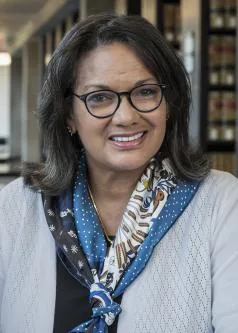
It’s hard to know what the low number of complaints says about the review board, Fairley said. Maybe there aren’t many complaints to the police department itself, though a 2020 Reader story showed the police then averaged roughly 200 per year. The board’s 2021 report mentions that civilian reports had declined.
Fairley wonders: Do people know the board exists? Do they think it has enough power? Do they trust it?
Justice thinks more Omahans do need to know of the board’s existence. While the public education forums were largely on hiatus since 2020 due to COVID-19, “there will be a concentrated effort to increase these forums moving forward,” he said.
He does think that Omaha’s system is strong enough, though “change can be good if it’s well thought out and not reactionary.” he said. “As a board, we welcome discussions with the Mayor’s office and Police Department on appropriate changes.”
Other boards like Omaha’s — including in Seattle, Indianapolis and Toledo, Ohio — do allow public meetings, share public documents and grant citizens subpoena power. Some cities, like Chicago or Kansas City, go further by giving boards authority to do their own investigations. Still others, like Denver, have multiple levels of independent oversight.
Implementing stronger oversight can sometimes cause pushback. A police union lawsuit stalled St. Louis from implementing stronger citizen oversight. In Minneapolis, a new oversight board faced criticism for reviewing only a small fraction of complaints that citizens submitted.
One easy fix: Make it simple to file a complaint or contact the board, Fairley said. Good boards usually have a phone number or email address and allow citizens to submit claims online, she said.
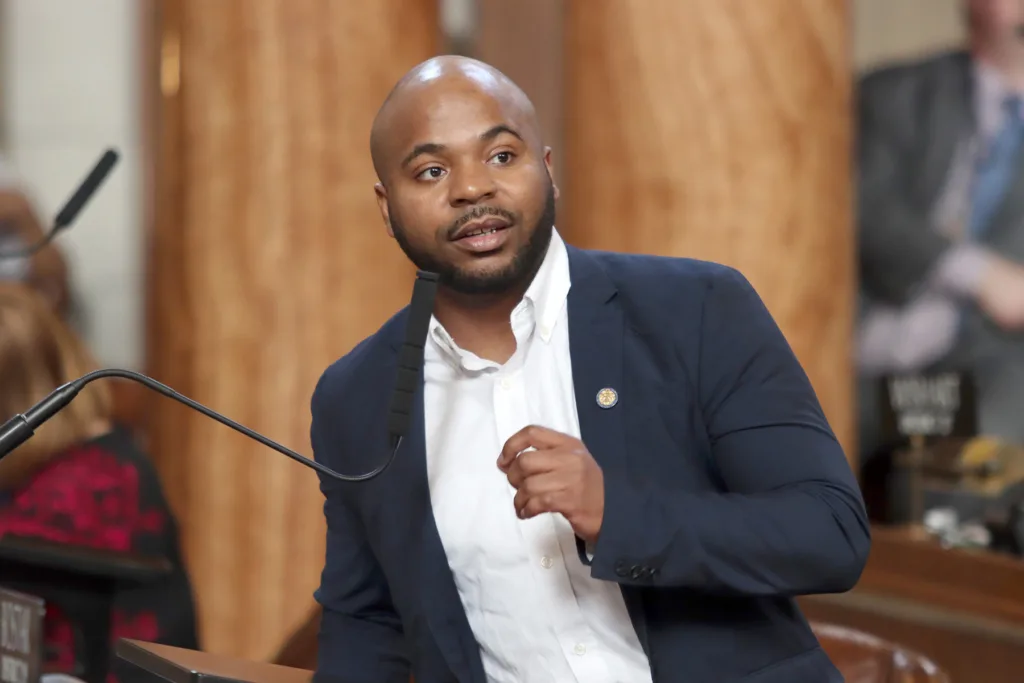
Currently the only way to contact Omaha’s board is by submitting claims directly to the board’s P.O. Box, a new addition in the summer of 2020. The Omaha Police Department also sends a letter to complainants, like Harris, who make a complaint to police. It informs them that they can file a “request for review” from the civilian oversight board, said Lt. Neal Bonacci, OPD spokesperson.
Why aren’t there more complaints? Bonacci said it’s a reflection of the department’s good work.
“I would say that our Internal Affairs Unit does a thorough job and takes their investigations very seriously,” he said. “Due to their diligence, citizens seem to be satisfied with the outcome of those investigations.”
So far Harris has been unsatisfied. She said the home security footage she shared with the police department corroborates her story. The Flatwater Free Press viewed the footage shared and saw only Harris, her daughter and police, plus a figure on the street at 9:27 p.m., a person who appears to be a foot shorter and much smaller than Harris’ 6-foot-6, 265-pound son.
Bonacci told the Flatwater Free Press late Thursday that the police department had mailed a letter to Harris responding to her complaint, but Harris said she hadn’t yet received it.
Harris said she would trust that her complaint against police would be dealt with fairly if there were stronger civilian oversight of the police department.
“I don’t understand why they would have other police officers making a decision about police officers when most of the time, they’re going to stick together anyway,” she said.
Stories like Harris’ bother Qasim Shabazz Asad, co-founder of the Black Agenda Alliance, a North Omaha advocacy group. In 2024, the Alliance plans programming to encourage more North Omaha kids to grow up to become officers. The group wants to start educating more people in North Omaha about what police can and can’t do, as well as what citizens can do to hold officers accountable in law-abiding ways.
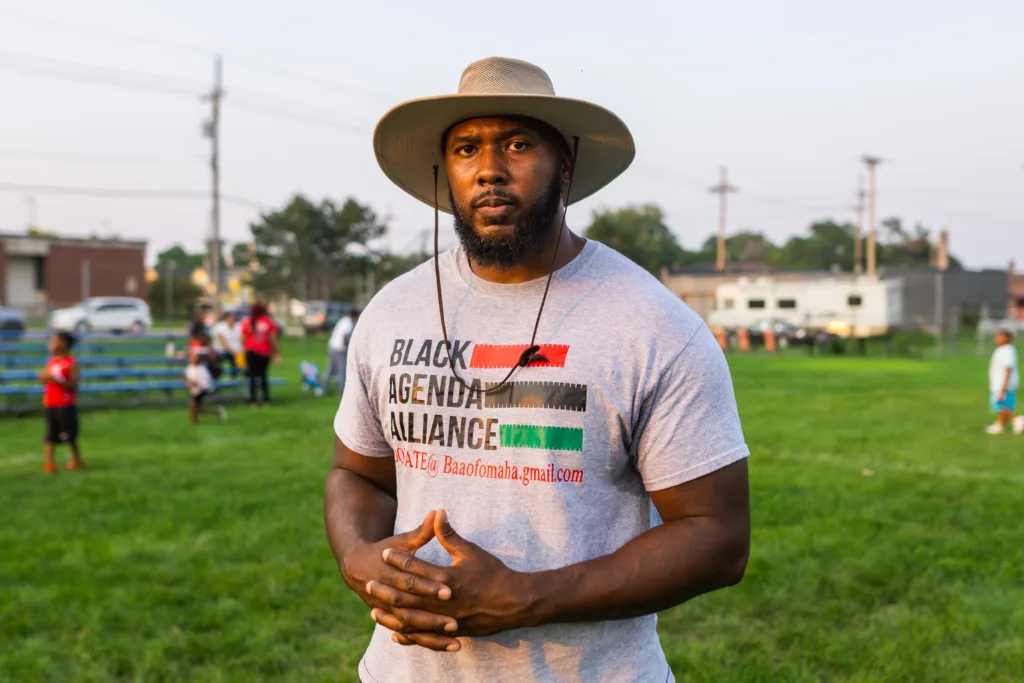
When Shabazz Asad learned about the Citizen Complaint Review Board, he was surprised it existed in Omaha. It sounded like something he’d like to be a part of.
“We’re not against the police. We support the police,” Shabazz Asad said. “We just don’t support a lot of the things that they’ve done.”
After Harris’ encounter with police in October, she said she and her daughter couldn’t sleep. Her daughter had nightmares of being shot by officers. Harris, a Black mother, says she worries about that happening to her children. To have her fear become her child’s fear makes Harris feel like a failure as a parent.
“(My daughter) said ‘I want to move out of Omaha. I want to move immediately,’” Harris said. “She’ll never trust police officers again. And what if she really needs help?”

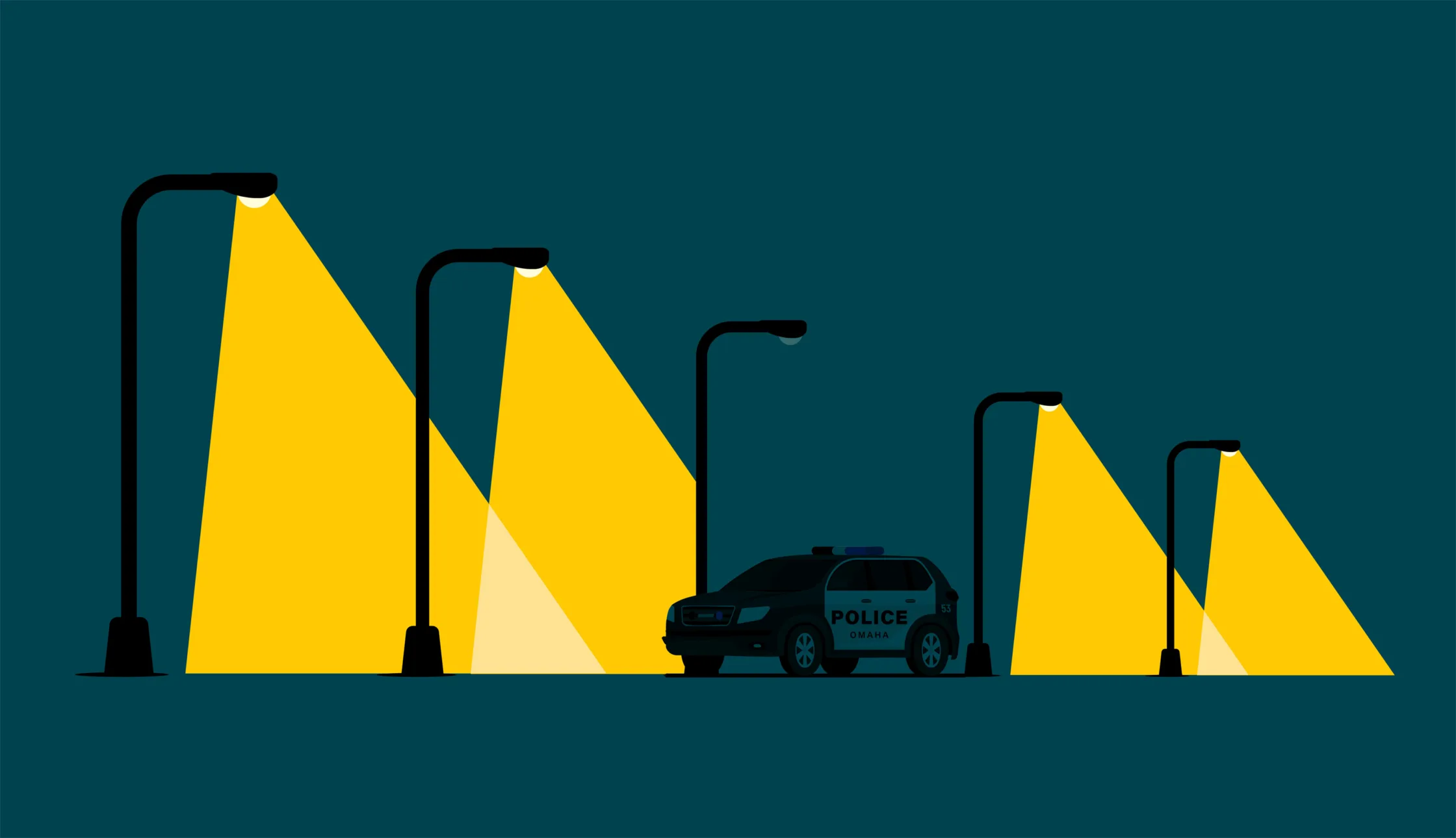

6 Comments
Omaha Police Department and this board are evaluating themselves and are not following the open meeting policy for the public. This board is obviously not available to the public in its meeting or responsive to the community in evaluating the Police Department. The only things this Board does is fit nicely on the page of a brochure or grant request for the City and Police Department. Also where is the Mayor again…..home in St Louis?
Great story. I had a similar experience with OPD around 2017. I answered a knock on my door to find two white police officers on my front porch. One male and a smaller female hold some type of device. They told me they were looking for someone, whom they named. I told them I didn’t know who that was. The female officer looking at the device said, and I’m paraphrasing, that her device showed that person at this address.
I shrugged and told the that we’re, and I corrected myself, that I was the only one here. I explained that my mom had passed six months ago and I’m still not used to the idea that she’s gone. Anyway, I said, “I don’t know what to tell you because I don’t know that person is.
At that point, I’m thinking, “Where do we go from here,” because we’re obviously at an impasse and they want to believe that little device thingy instead of me.
I also remember thinking at the time, I’m glad I have a locked security door between me and them in case their currently polite skepticism turned dark and the situation were to go south.
Then remarkably and fortunately out of the house next door, steps a young man. It caught their attention and one of them said, “That’s him!” Then they both ran off the porch appologizing and confronted him in front of my neighbor’s house.
Now the crazy thing is, I don’t know why I didn’t think to tell them to look next door because for some reason, I remember asking how old this person was. I also told them I didn’t even have kids or have any reason to know anyone in that age range that would be in my house. The age was a teenager and that would have been about the age of my neighbor’s drug dealing son.
I stood in the doorway expecting to see them haul this kid away in handcuffs. They talked to him for about 10 minutes and drove away without him.
Wow. All these years later, I do still get butterflies in my stomach when I think how ugly the situation might have gotten because the police thingy was giving them inaccurate information.
I love Flatwater Free Press, and I salute the intention of this article, but the headline and lede are a bit misleading. Did the board review all complaints before it in a reasonable time? That’s left unclear. Deep in the story it becomes clear there’s a mystery surrounding the low number of citizen complaints. It does seem likely that more complaints would be filed if the process were publicized and simplified. But unless the Review Board has been tasked with publicizing its existence and is able to modify the complaint-filing process, it is not properly a target for criticism in this story, is it? I offer this critique not as a defender of the board or the police, but as a journalist cheering you on to produce the best journalism possible.
I would agree. Great feedback for the reporter.
If complainants to the police dept get a letter from the police dept they have appeal rights to a civilian board, then they have knowledge and where to register the complaint. So it would appear those who need to know, know. complaints it appears can’t be acted on by the board unless it is an appeal.
We need to know more. How many complaints (not appeals) were filed against OPD in the past 4 years? The reporter cites a 2020 article (https://thereader.com/2020/08/19/who-polices-the-police-in-omaha-citizens-have-little-power/) that estimated 200 per year. What’s the actual number? It should be public record. We also need to hear from more of the people who filed complaints but didn’t appeal the police response to their complaint. Why do so few appeal?
It seems that other cities have set up police complaint review systems with greater transparency, more independence from the police and mayor, and more investigatory power. You need to balance these features, but they’re standard in many other systems of oversight. Why not here?